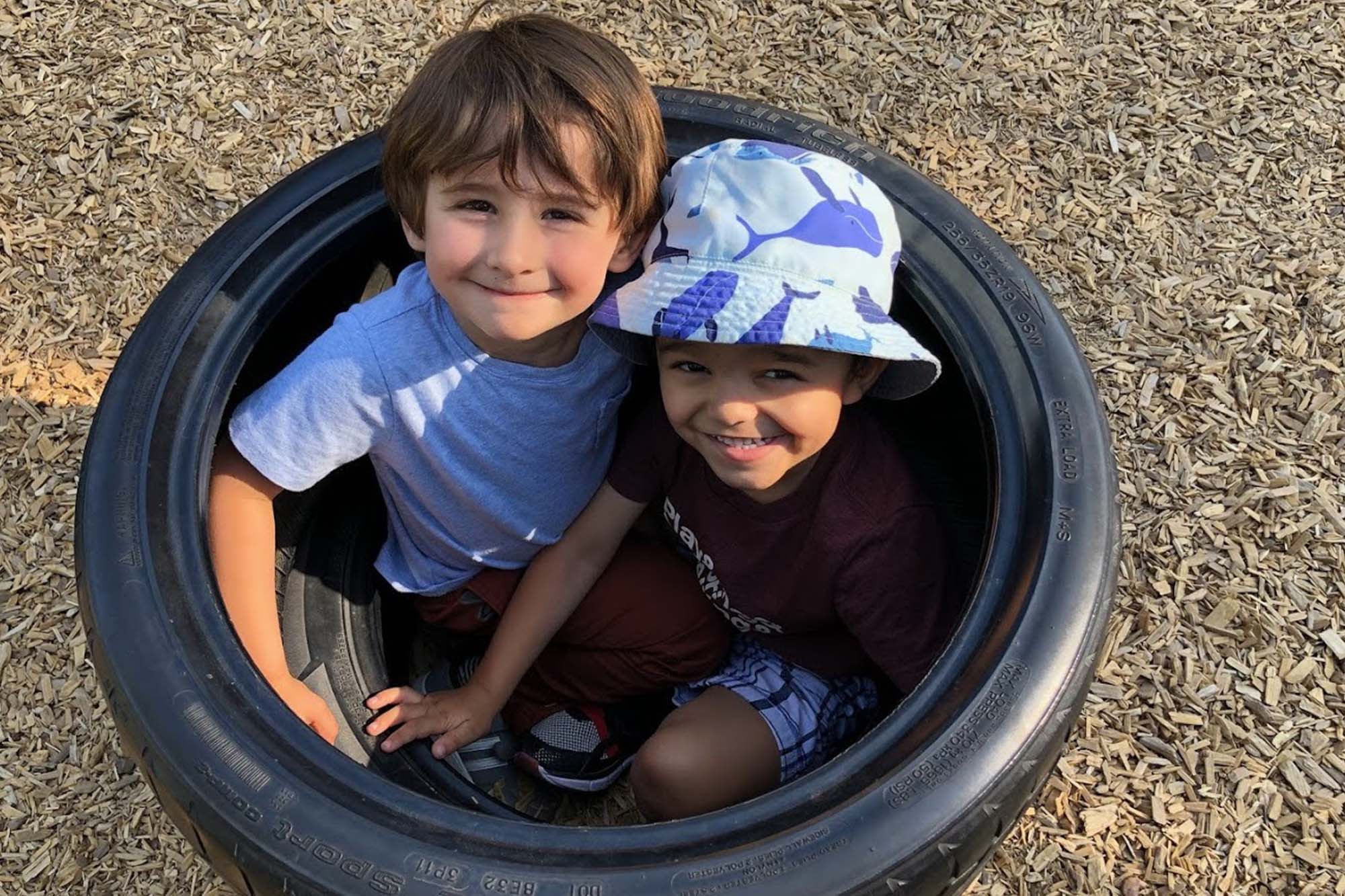
Earlier this year, when BioKids was awarded a half-million-dollar stabilization grant, where those monies were allocated spoke to the ethic of this celebrated childcare and pre-school at the School of Biological Sciences.
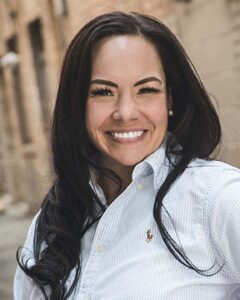
“My first priority was to take care of our staff—to ensure they are receiving equitable wages and benefits,” says Christine Medina, Director. “They are the most critical component to our day-to-day operations. Supporting our staff is the best way to support our families.”
In addition to paying back the College of Science for the building remodel (2020) and a recent remodeling of its infant/toddler playground, the pandemic relief funds issued by the Office of Childcare: Department of Workforce Services allowed Medina to allot more of her annual budget towards base salaries/wages. As a self-sustaining (recharge) program at the University of Utah, BioKids is required to bring in what it pay outs. And, of course, parents have limits on what they can pay in tuition for their child care costs.
“Given the recent workforce demands for increased pay,” Medina says, “the grant has enabled us to meet those demands with most increases around 30% and without further burdening parents.”
This innovative ethic first underscored the launch of BioKids in 1999 when a group of biology faculty decided they wanted to make it easier and more convenient for faculty to care for their young children during the work day. As a parent cooperative program, Medina explains, “parents are involved in the program and encouraged to participate in daily activities and needs of the classrooms. Parents and Staff work together.”
In the early days, faculty took turns teaching the children and directing the program outside of their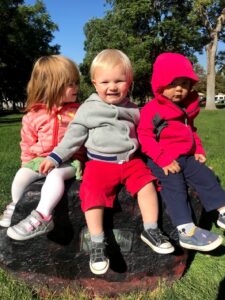 positions in the Biology Department (now the School of Biological Sciences). “It was a grass roots effort to provide childcare,” says Medina, and then quips with a smile, “Dave Gard, a cell biology professor [now emeritus], operated BioKids as the Director for a short while and said, ‘it was the worst job I ever had.’” Then when the pandemic happened, high-touch parental involvement had to end.
positions in the Biology Department (now the School of Biological Sciences). “It was a grass roots effort to provide childcare,” says Medina, and then quips with a smile, “Dave Gard, a cell biology professor [now emeritus], operated BioKids as the Director for a short while and said, ‘it was the worst job I ever had.’” Then when the pandemic happened, high-touch parental involvement had to end.
Clearly, a new model was needed. Today, in addition to Medina as director, there are 13 employees that thread through three classrooms each hosting a different age range. The three-class model supports the current research for how children learn and develop: infants (3 months to 18 months); toddler (18-33 months) and pre-school (30 months to 5 years old).
What makes BioKids with an enrollment of 40-45 children at any given time distinctive from other day care/pre-schools on campus?
“Most faculty and staff can see their children from their offices/labs while outside on walks or on the playground. Or, they are [just] a short walk away. Many of their colleagues are also enrolled, and their children are spending time creating friendships and bonds that span the family,” says Medina.
In addition to the close proximity of BioKids, housed in Building 44 just south of the Skaggs Biology Building, each cohort of children has a low enrollment with low student/teacher ratios. This allows staff to get to know each individual and plan a “whole child” approach to their learning. The more professional staff also means that children’s progress and comprehension are monitored with developmental assessments and portfolios. BioKids is now accredited by the National Association for the Education of Young Children, representing early childhood education teachers, para-educators, center directors, trainers, college educators, families of young children, policy makers, and advocates.
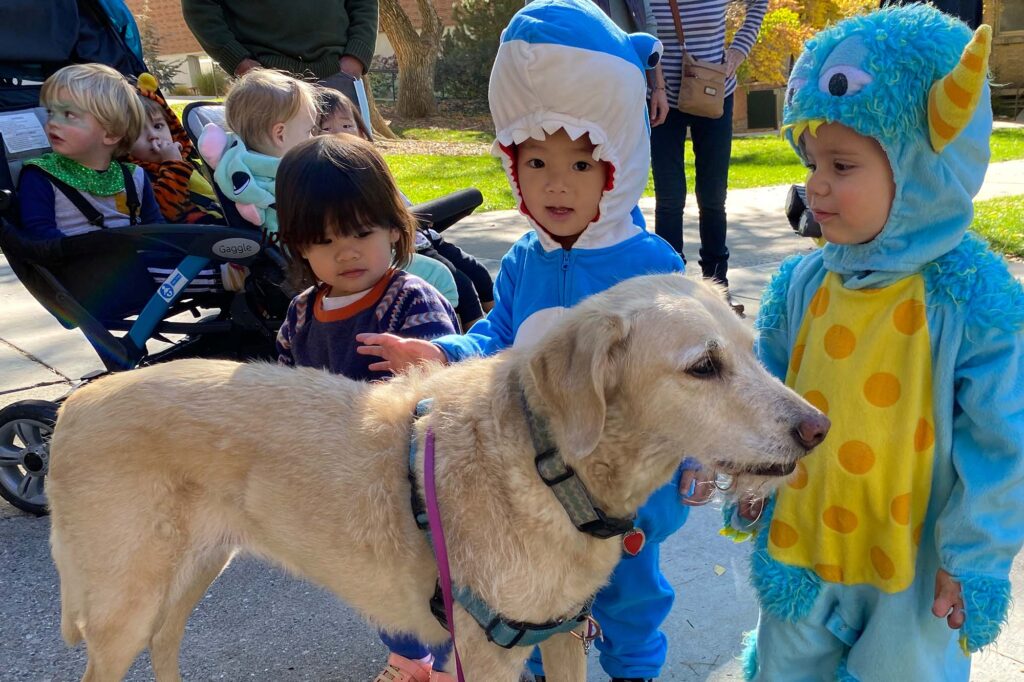
Another advantage to the BioKids model is that children move up and progress through classrooms based on their age and the designated age range of each class. Children enroll based on the parents’ need, generally for a 4-to-5-year span and without pause. The child care/pre-school has a reputation as one of the most successful and desired programs in the city. No wonder there’s a three-year wait for families outside of SBS and the College of Science which have priority status in admissions.
Parents are not the only ones who appreciate the kind of continuity in their child’s life . . . as well as their own . . . that BioKids affords. Staff are clearly happy as well. Turnover is “very low,” something that a 30% raise in wages is likely to further cement. Remarkably, “both original preschool teachers hired in 1999 are still with us today,” says Medina. “Their first hoard of children are now in college!”
“I know that when my kids are all grown up and I reflect back on their childhood, BioKids will be one of the most treasured parts. We have no family here and the kids and teachers are very much our Utah family. It is a gift to have a place where my kids feel so incredibly, safely loved as themselves.” ~ BioKids Parent
As for Medina, she has been an administrator for prominent early childhood programs in Salt Lake for 23 years and serves on several committees throughout the state. There she advises on state-level policies and initiatives for the childcare industry—for both the child and the worker. Her undergraduate degree is in Family and Human Studies, and she also holds a National Administrators Credential and a Child Development Associates credential, along with several state endorsements.
It’s easy to see why BioKids is such a hit. Outside both main biology buildings (South Biology and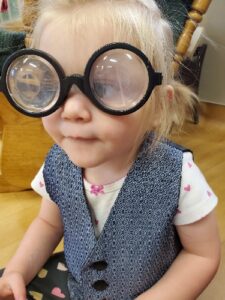 Skaggs) the ambient noise of childhood play wafts in on any given day, and the ritual of parents coming and going to drop off and pick up their wee ones is heartwarming. Every Halloween (especially now that the pandemic has eased some) a trail of children costumed as lizards (or are they dinosaurs?) and other life forms, arrive at the Main Office to trick or treat and endure comments like, “Oh, wow, the freshman are getting younger every year!”
Skaggs) the ambient noise of childhood play wafts in on any given day, and the ritual of parents coming and going to drop off and pick up their wee ones is heartwarming. Every Halloween (especially now that the pandemic has eased some) a trail of children costumed as lizards (or are they dinosaurs?) and other life forms, arrive at the Main Office to trick or treat and endure comments like, “Oh, wow, the freshman are getting younger every year!”
But it is the daily routine that is most charming. Markus Babst, Associate Professor of Biology and Director of the Cell & Genome Center is all smiles every morning when he drops of his two-and-a-half-year-old at the historic building built during World War II with original windows, moldings, hardware and exposed brick. (The building was originally the student health facility.) A first child, six-year-old Oskar, is already a BioKids graduate, and this second child, Mari, along with her parents are more than happy to have Mari enrolled in what Babst calls “a warm, friendly and educational place.”
End of day, Babst returns on his commuter bike towing its requisite canopied trailer for toddlers, and will sometimes lift his daughter over the chain-link fence to give her a hug, strap her in and then head for home. It’s a bucolic scene right here on campus, usually commandeered by college pursuits, and it spurs passing students to look up from the perpetual viewing of their mobile screen and . . . smile. Sometimes they even stop and watch for a few moments perhaps remembering something nostalgic about their own past as a small person.
By David Pace
BioKids just completed renovating the playground to better serve infants and toddlers with a 75% increase in square footage and featuring better sun protection, a poured-in-place rubber surface, and equipment for crawling, climbing and running.
